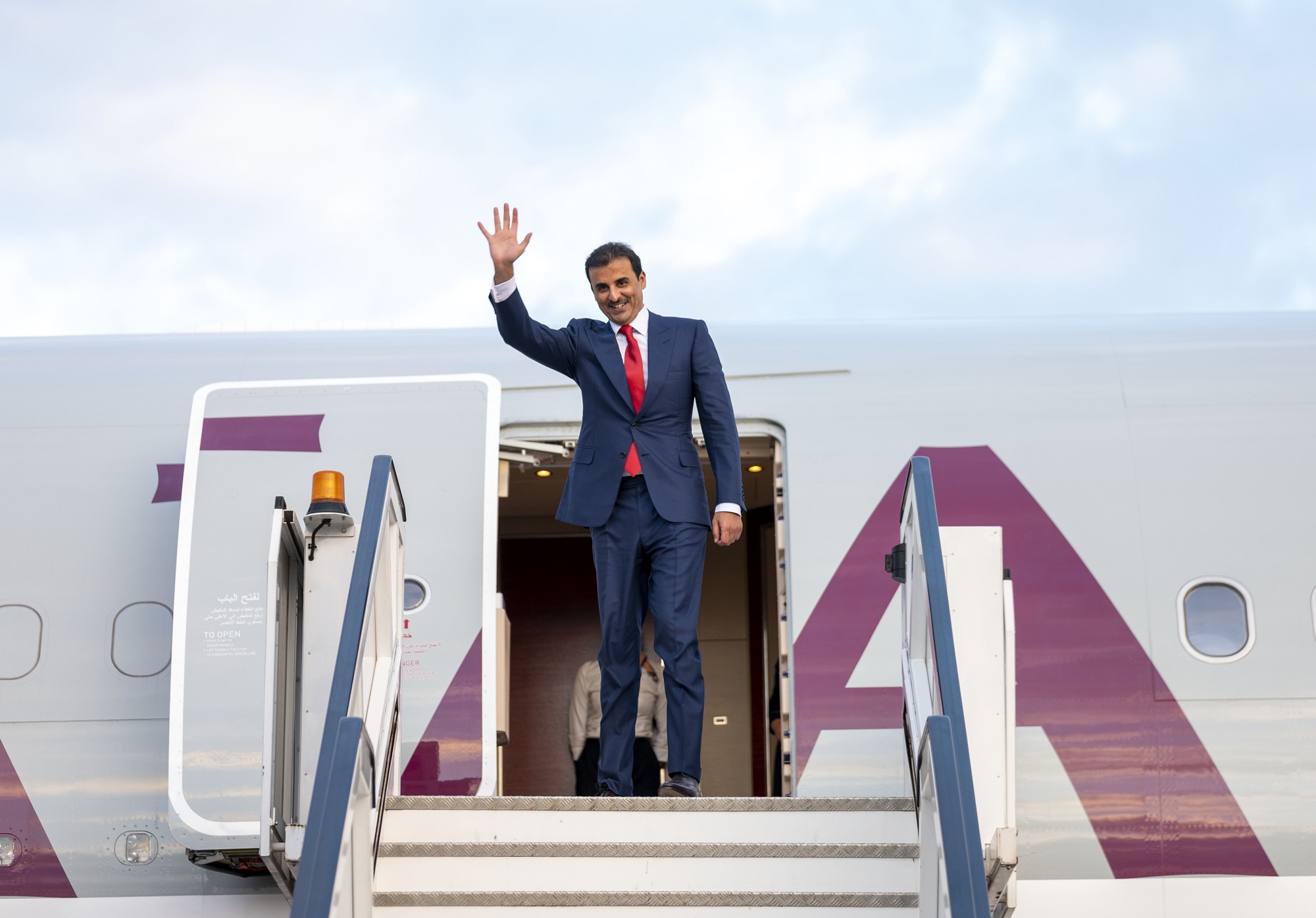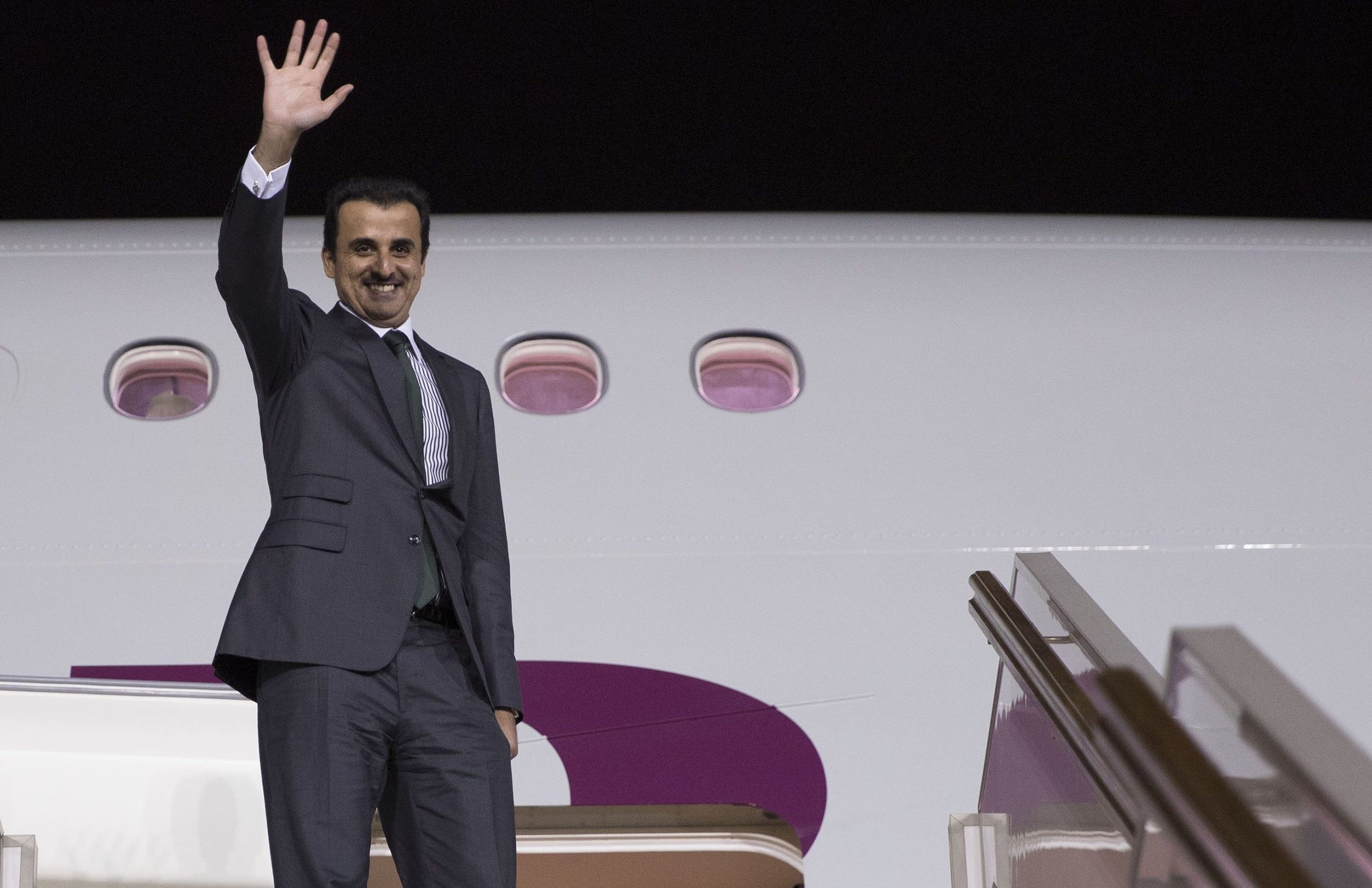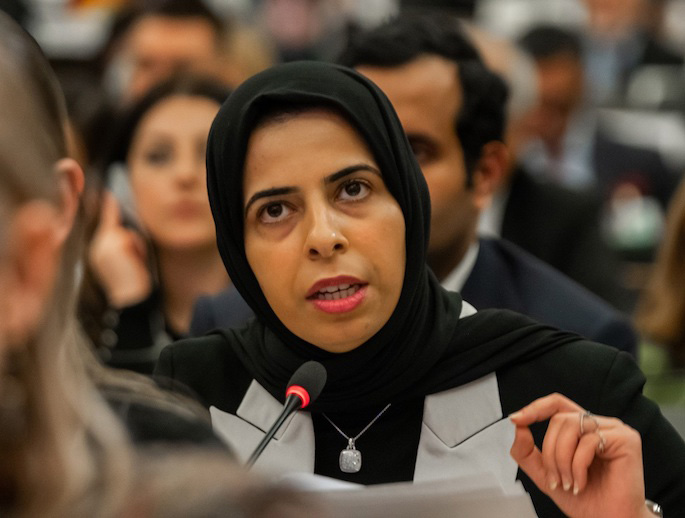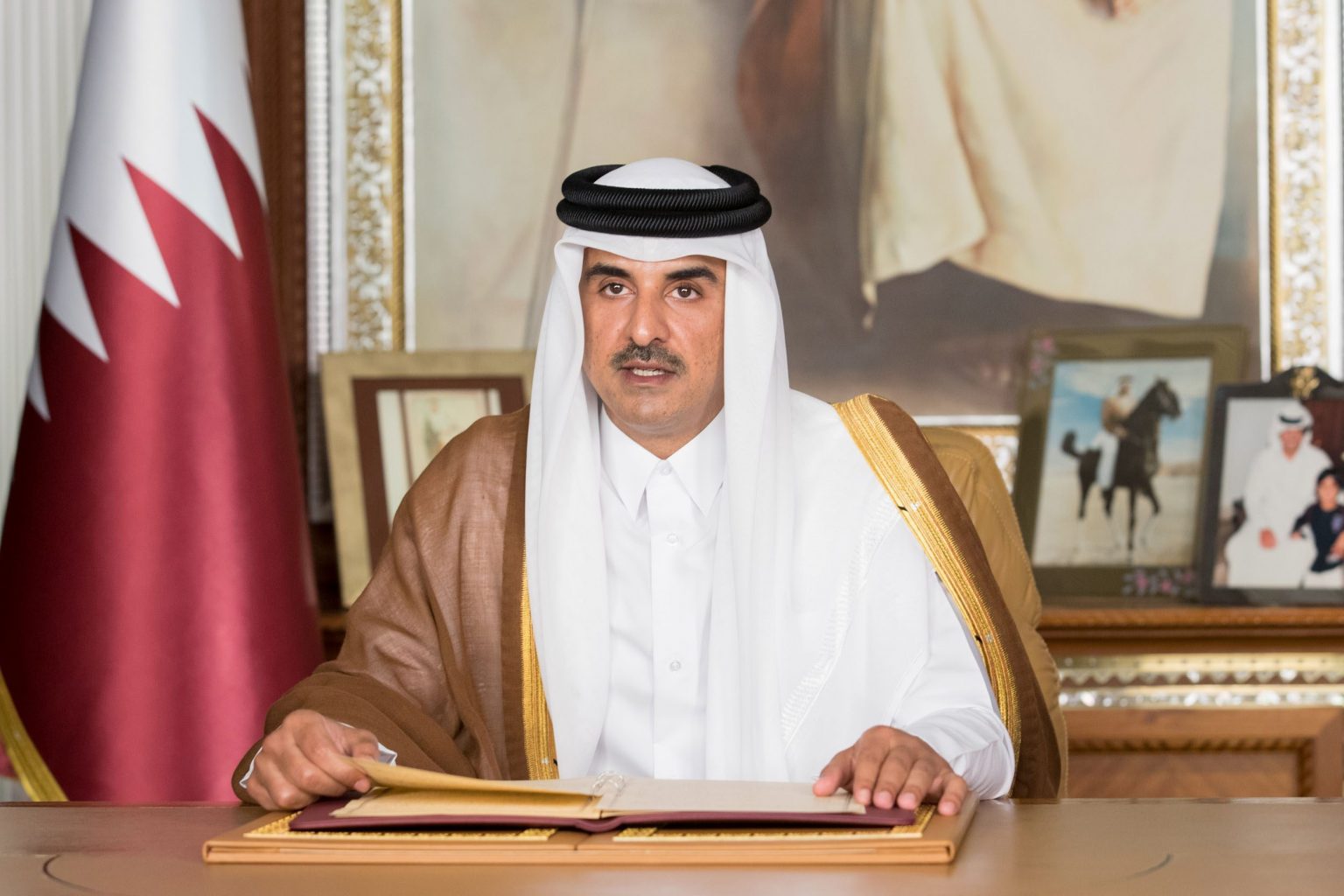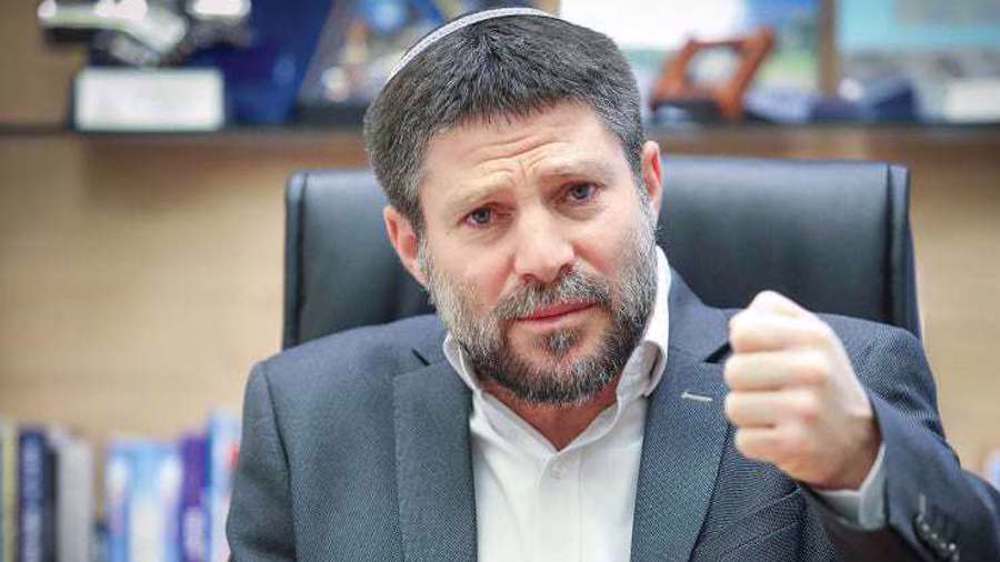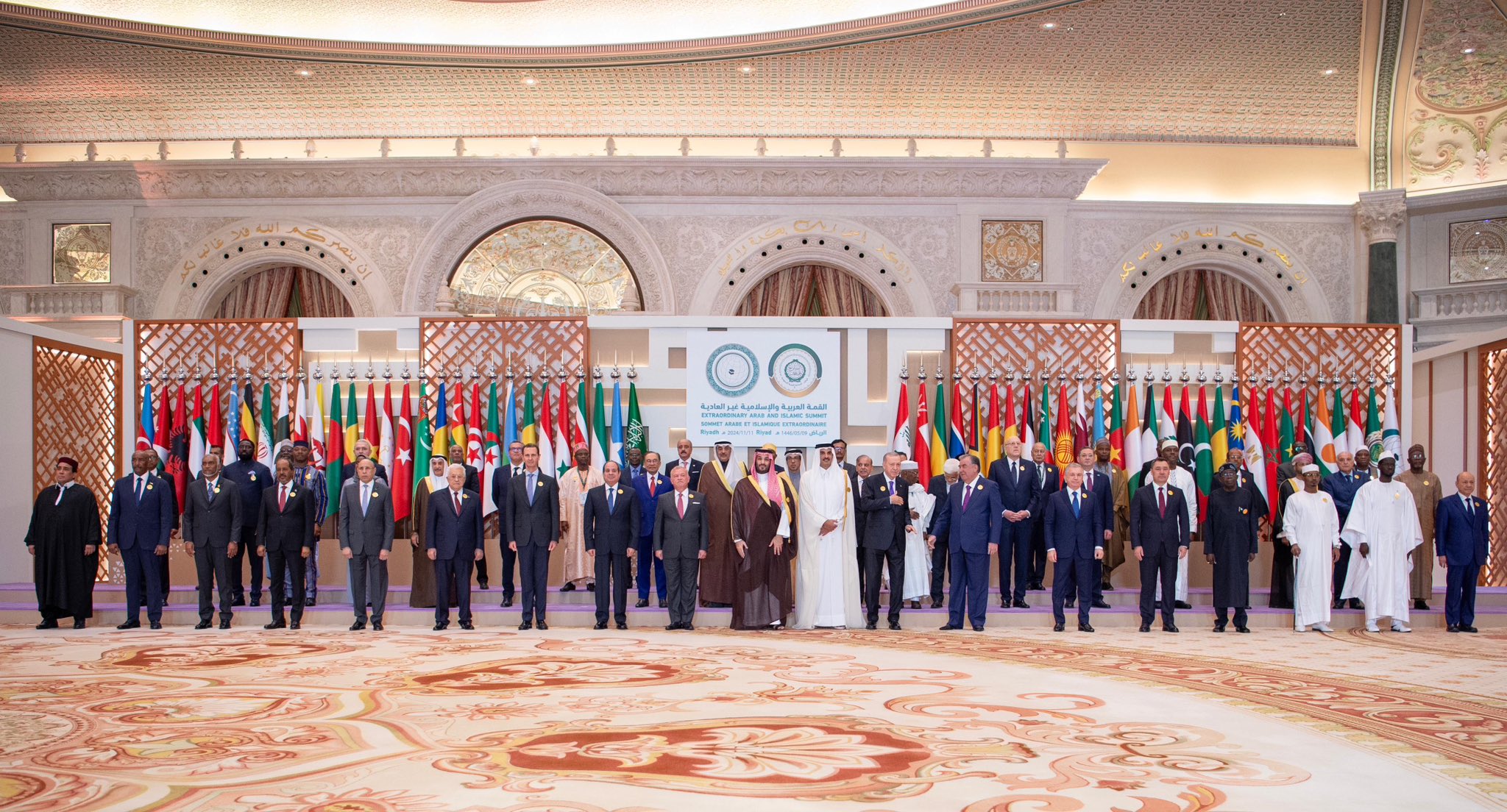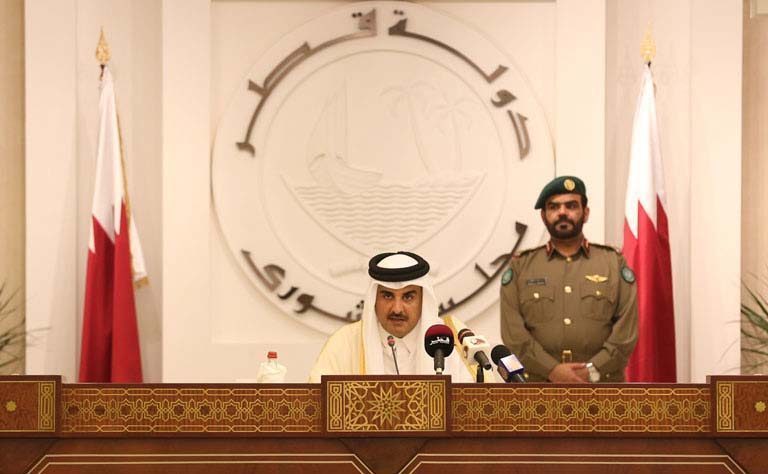
With reporting from Riham Sheble
Tumbling oil prices should not send Qatar’s citizens into a panic, but instead motivate them to reject “self-delusion” and find a way to help secure the nation’s future, the Emir has said during the opening of the 44th session of the Advisory Council this morning.
Touching on themes from his past addresses, but in stronger language, Sheikh Tamim bin Hamad Al Thani urged an end to wasteful government spending, corruption and bureaucracy that inhibits entrepreneurship, according to remarks carried on QNA.
“We will not tolerate financial and administrative corruption, or abuse of public positions for private purposes, or abandoning professional standards for a personal interest,” he said.
The Emir also suggested that plummeting oil prices could actually be a blessing in disguise, as the wealth brought in from natural gas and oil has caused many to become dependent on the state “to provide for everything, which reduces the motivation of individuals to take initiatives and be progressive.”
To this effect, Sheikh Tamim urged the youth to pursue more diverse career paths to better secure the nation’s future:
“I would like to take a short pause to address the Qatari youth. Qatar’s economy cannot dispense with foreign expertise and labor, this is true, yet Qatar cannot be built without you. It cannot be built on a limited number of professions and specialties that are pursued by all.
There is a complete and vital sectors of the state such as the field of security, army and police, and even planning, management, engineering, medicine and scientific research, where we need Qatari youth, and Qatari youth must turn to all specialties and take their homeland into account when taking decisions.”
The government has long encouraged young Qataris to explore careers in the private sector and consider starting their own companies, providing support through entrepreneurship organizations such as Silatech and the Qatar Business Incubation Center.

While these initiatives have helped some residents, the message has appeared to so far been a tough sell for the local population as a whole.
Qatar’s regular labor force surveys show a majority of unemployed Qataris are unwilling to work in the private sector.
Respondents said unsociable working hours, a long working day, lower wages and the frequent requirement to work a six-day week were among the factors that discouraged them from considering employment in private companies.
Shifting priorities
Diversifying Qatar’s economy away from oil and gas has been a constant theme in political speeches in recent years.
Statistics show rapid growth in the non-energy sector, but this is being primarily driven by government spending on mega-infrastructure projects such as the Doha Metro and new expressways, health care facilities and stadiums for the 2022 World Cup.
“We’re in a new phase of economic growth that’s dominated by government spending,” Edd Brookes, the general manager of real estate firm DTZ Qatar, recently said. “Whereas most markets may grow organically through (rising consumer and business) demand, Qatar is much more government-driven.”
In his speech, the Emir said businesses should stop being “patrons” of the state and instead create a more robust private sector.
He added that the government has a role to play by creating favorable investment conditions, supporting startup firms and eliminating bureaucratic bottlenecks.
Currently, government departments that regulate businesses have onerous and unclear requirements that discourage companies from doing business in Qatar, he said:
“Duplication among the ministries, and frequent changes in the procedures, transactions, requested forms and licenses … tend to confuse citizens, as well as local and foreign investors. Many would not venture to invest, if the investor is requested every day to fill out a new form, a new license; or if several conditions were changed many times during the submission of the application.”
However, Sheikh Tamim said that there are limits on how far the government itself can go in diversifying the economy.
That task is ultimately up to “the business sector itself,” he added.
Reactions
On Twitter under the hashtag #خطاب_الأمير_للشورى (the Emir’s Shura Council address), many residents reacted with near-universal praise for Sheikh Tamim’s remarks. His comments about the need for combatting corruption appeared to strike a chord with many:
خطاب جريء وصريح
أكد فيه صاحب السمو أن الحقائق على ارض الواقع لا الشعارات هي مقياس النجاح#خطاب_الأمير_للشورى pic.twitter.com/n7dvsj6dZj— Sultan Al-Kuwari (@qtri) November 3, 2015
Translation: A brave and honest speech! His Highness emphasized that facts on the ground and not (empty) slogans are the real measurement of success.
#خطاب_الأمير_للشورى يمثلنا جميعاً ،، قبل ان تأخذ دور المنتقد انظر ماذا قدمت لوطنك فالمقابل ،، خطاب سمو الامير رسالة لكل من تهمه مصلحة الوطن
— نـــــايـــــف الـعــنـــــزي (@naif313) November 3, 2015
Translation: The Emir’s speech represents all of us. Before rushing to the role of a critic, one has to first ask what they gave their country and how they served their homeland. His Highness’s speech is addressed to anyone who is concerned for the good and interest of this country.
Looking ahead, Sheikh Tamim said work has begun on drawing up a new National Development Strategy to carry Qatar through the final years before the World Cup.
The 2017-2022 plan will take into account many of the goals that were not realized in the previous strategy, which was developed shortly before Qatar was awarded hosting rights to the football tournament.
That document thus did not factor in Qatar’s rapid expansion, World Cup deadlines and high project costs.
Thoughts?


